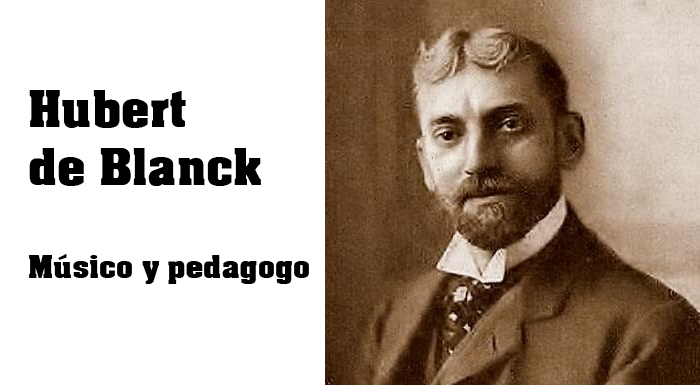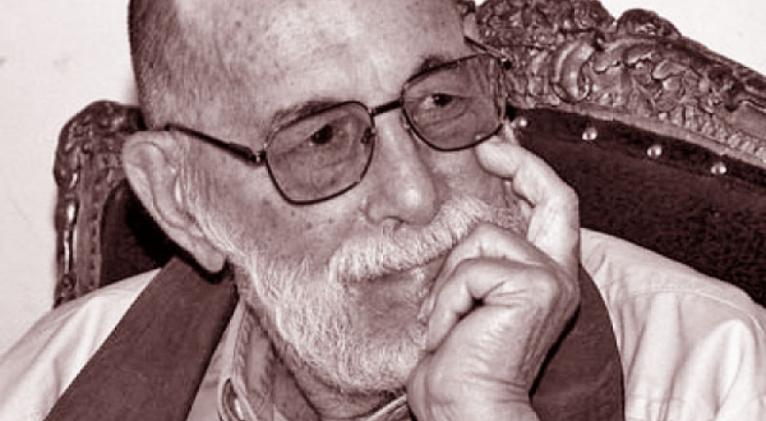Hubert de Blanck and the Spirit of Cuba

Around 1883, when he was only 27 years old, the Dutch musician Hubert de Blanck settled in Havana. The composer already had an established professional background in his homeland, where he received lessons from his father, Wilhelm de Blanck, and studied at the Liège Conservatory in Belgium and the Cologne Conservatory in Germany. There, he perfected his skills in composition and harmony, which he later showcased in performances on renowned stages across the United States and Europe.
His arrival in the Antilles was closely intertwined with the nation’s events. As noted by writer, researcher, and journalist Luis Toledo Sande, Hubert quickly affirmed his artistic professionalism and political orientation. He connected with prominent figures in the arts and was appointed president of the Philharmonic Section of the Caridad del Cerro Society and the Conservatory of Music and Declamation:
«De Blanck already had a professional life established in his native country and European surroundings when (…) he settled in Havana, and his relationship with Cuba was marked by his love of freedom: he embraced the independence cause of a land that, when he established himself in it, had demonstrated heroic efforts to free itself from Spanish colonial rule and would continue to do so.»
Works such as Danza Cubana, Capricho Cubano, Souvenir de La Habana, and La Fuga de la Tórtola (in which he set to music the verses of José Jacinto Milanés) reflect his deep affection for Cuba. Due to his involvement with the Revolutionary Junta of Havana, he was deported and moved to New York, where he worked as an accompanist pianist and gave private lessons.
After the War of Independence ended, he returned to the largest archipelago in the Antilles, settled back in Havana, and founded the National Conservatory of Music, which included the Espadero Hall, one of the most important and highly regarded concert halls in the country at the time.
His connection with music education took deep root even after his passing. During that time, he premiered the opera Patria, the first operatic piece to address the independence struggle. The work was partially premiered on December 1, 1899, at the Tacón Theater, with a libretto by Ramón Espinosa de los Monteros, and was performed by Italian tenor Michele Sigaldi and soprano Chalía Herrera.
A few years later, the composer officially adopted Cuban nationality. On this, Toledo Sande remarked, aligning with the significance and relevance of this action:
«(…) it is worth considering it a declaration of faith in someone who would continue to develop, in the service of this country’s culture, work that (…) included his role as vice-treasurer of the Circle of Fine Arts and president of the Music Section of the National Academy of Arts and Letters, as well as the creation of the magazines Cuba Musical and Correo Musical. He was also a founding honorary member of the Society for Musical Promotion.»
In line with this, special recognition is due not only for the actions he took to promote culture and piano teaching but also for the preservation efforts carried out by his daughters, Margot and Olga, and his wife, Pilar Martín.
The legacy of this artist should be valued not only for the enduring impact of his work (a difficult and arduous task in itself) but also for the spirit of someone who truly appreciated the values of a land and its people, striving to offer his best, most useful, and necessary contributions to foster all that is good in life through art.
In the words of Luis Toledo Sande:
«Honoring him as he deserves and adding rightful acknowledgments to those he received in life will help demonstrate, among other things, a respectful way of creatively embracing national symbols, which is significant, because the necessary and demanded respect for these symbols should not be confused with a paralyzing attitude, nor lead to one.
«In any case, it seems inescapable to consider that the attempt to create it would require not ignoring, nor silencing, the exemplary contribution with which De Blanck reaffirmed his love for Cuba and its freedom, and honored the country that should honor him as one of its good sons not only in the realm of music.»
Translated by Luis E. Amador Dominguez



